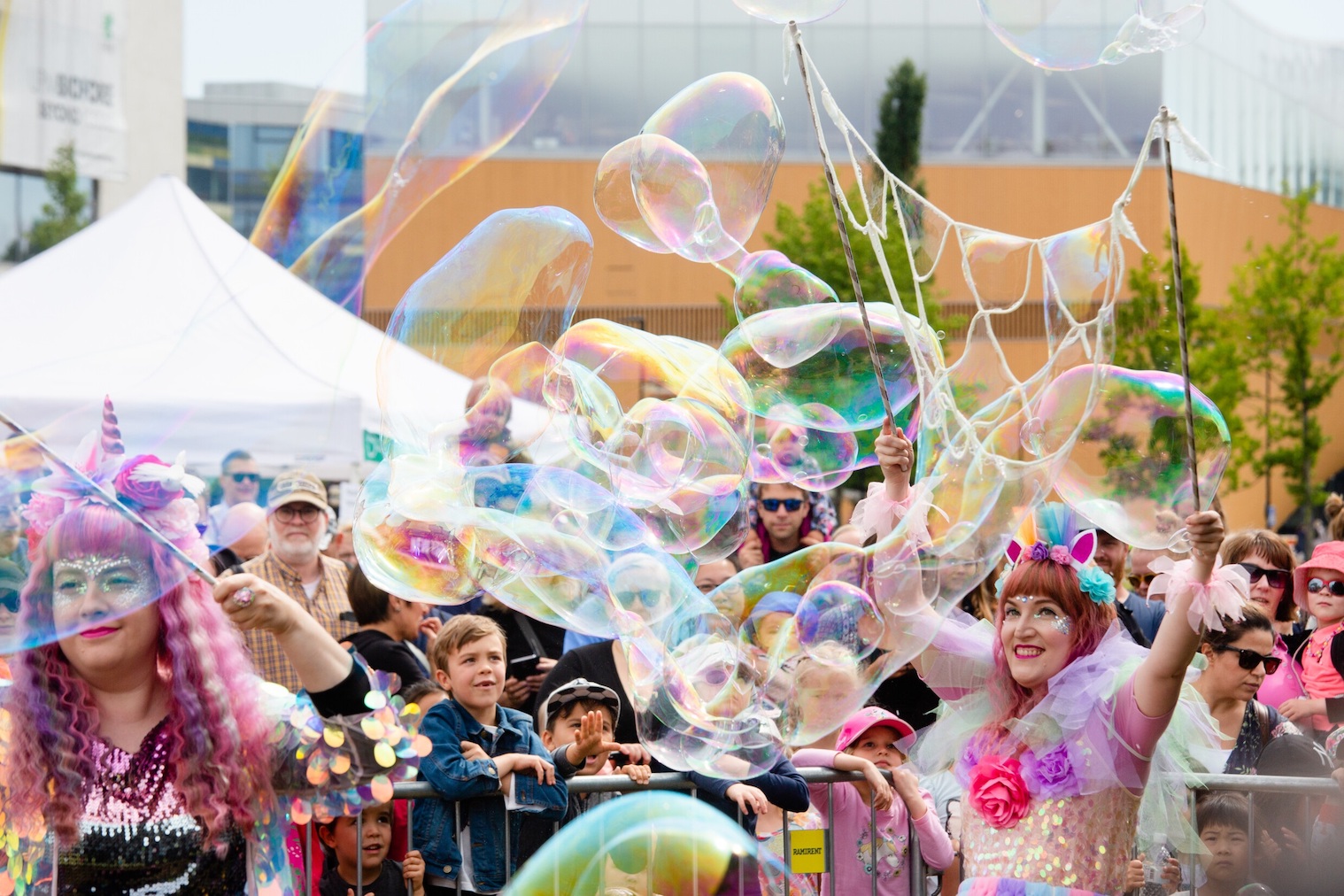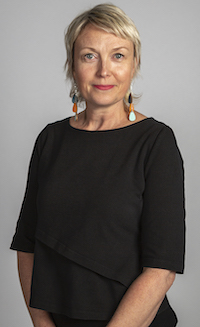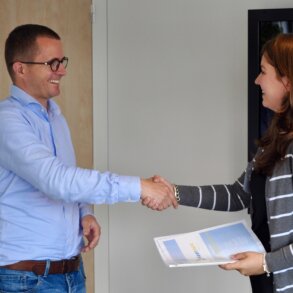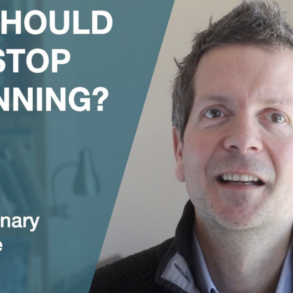By Laura Norris for Enlivening Edge Magazine
When I talk in gushing tones about the way we work in self-managing teams, people often ask me if it’s worth it, and how I know that it is. Well, research shows that working in a self-managing organization increases well-being at work.
Helsinki’s awesome new Central Library Oodi opened in December 2018, located in a custom-built, architectural-award-winning building right in the heart of Helsinki.
Expectations were high for this high-profile project, and we were expecting up to 10,000 visitors a day. Oodi doesn’t just lend books: one of the first things we did, long before we opened our doors to the public, was to create our own, ambitious evolutionary purpose: to bring more equality to the world and to increase citizen involvement in society. Our EP helps us make decisions and focus on the essential.
We knew that in order to succeed, we’d need to work differently from how libraries usually work in the Finnish public sector. We’d need to eliminate bureaucratic bottlenecks to ensure that we’d be able to give our all at the customer interface. We decided that our teams would have to be self-managing, and we chose a way of working based on Teal.
Self-management at Oodi
Here are a few examples of what self-management means at Oodi:
- Teams make independent decisions about almost everything related to their work.
- Team members are involved in planning work shifts.
- Teams decide how to develop services for customers, what events we hold, and the opening hours of our services.
- Teams are responsible for their own procurement, and they’re involved in recruiting new team members.
The numbers say it all
Even though we feel that the way we do things feels like the right way for us, it’s always great to get outside confirmation to confirm your beliefs. Tampere University asked Oodi to take part in a study into occupational wellbeing in self-managed organizations. Not many public organizations are self-managing, and Oodi was the only one of the five organizations participating in the study that was from the public sector.
The study showed a correlation between self-management and wellbeing at work. The flow of work is often used in Finland as an indication of occupational well-being. The study indicated that this flow is a lot higher than average in self-managed work environments, and Oodi had the best flow of work of all the workplaces in the study.
Oodi’s score was 5.2 out of six, compared to an average in traditional organizations of 4.2. Oodi also scored highly in social capital, e.g. feelings of respect, trust and support, with a grade of 4.5 out of five.
A study of occupational wellbeing carried out by the Finnish Institute of Occupational Health had similar findings, and we were proud of how much better than the average we were compared to other city council organizations.
In the category of indicators that cover the working community (e.g. being innovative and goal-oriented), Oodi scored 88 out of 100, compared to the average of 55 for the city organizations as a whole.
When you compare how people view working themselves, such as how they feel about change at work, how rewarding they view their work as, or the balance between stress and reward, we scored 73 out of 100. (The average was 55 for the city organizations.)

This photo is of a big festival called Pointti organized in collaboration between Oodi, City of Helsinki and Yle (Finnish Broadcasting company)
How did we do this?
Initially, we emphasized Wholeness, which for us took the form of Principles of a Safer Place. The staff held workshops where we decided what sort of workplace we wanted.
These discussions created mutual trust, support, and respect. The Tampere University study showed that, again, Oodi was the best of the organizations studied in all of these aspects. This exceptionally high feeling of togetherness has helped us get through rough times, too.
The study reveals that there are significant benefits to self-management, like opportunities to influence things, to make work tasks more meaningful, and to support learning. At Oodi, the job descriptions are broad, and everyone can bring their own skillset to bear and influence the tasks they perform.
As one Oodi employee interviewed in the study said, “We don’t care very much about someone’s job title—whether it’s trainee, supervisor or something in between. If you are interested in something, you can work on it.”
High motivation often correlates with occupational well-being, and we are highly motivated by the idea that what we are doing and experiencing is something new—something that could result in changes to the entire public library field in Finland.
Some Teal is better than no Teal
The self-managed approach seems to suit Oodi because it helps to highlight the employees’ different skills and strengths, generating new solutions to meet customer needs. We’re part of a large, traditional organization in the City of Helsinki, which itself sometimes causes issues when our agile methods collide with the bureaucratic inertia of its slower decision-making processes.
If we accept that in a public organization, there are always going to be some blurred boundaries to the limits of decision-making and that there will likely always be some conflicts and butting of heads with council bureaucracy, I believe that self-management has a lot to offer in the public sector.
The benefits for everybody—staff, customers and the organization—are numerous. Customers will benefit from creative and constantly improving services. I have heard Teal advocates sometimes say that it’s not worth trying to work in the Teal way—you have to have a full transition to Teal, or you shouldn’t do it at all. We think having a modified form of Teal is totally worthwhile, even though we know that there are many boundaries that prevent us from going the whole way. This is a journey, and while the path is sometimes rocky and windy, and maybe even the destination is not always clear, it’s a journey that we’re all taking together and we all feel better for it.
https://www.oodihelsinki.fi/en/
https://reinventingorganizationswiki.com/theory/self-management/
https://reinventingorganizationswiki.com/theory/evolutionary-purpose/
https://reinventingorganizationswiki.com/theory/wholeness/
 Laura Norris works as a Service Manager in Helsinki Central Library Oodi.
Laura Norris works as a Service Manager in Helsinki Central Library Oodi.
She is into developing the work life and Teal way of working.
E-mail: [email protected]





I am happy to answer any questions or comments regarding our experience in Oodi.